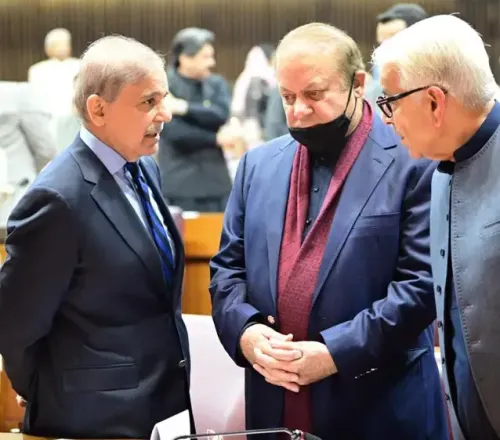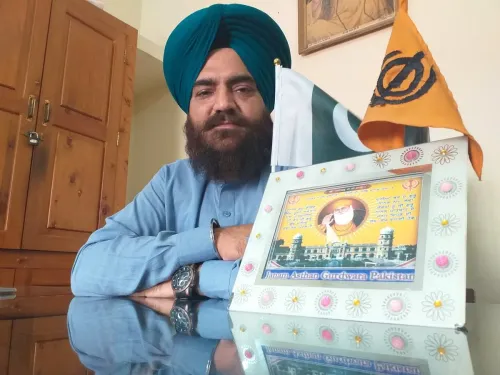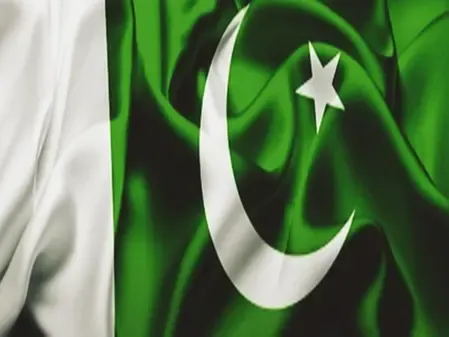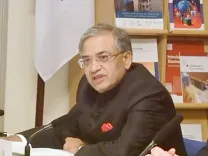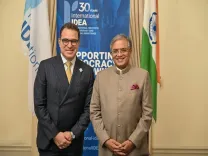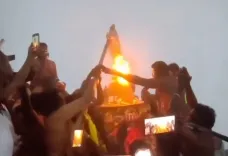Why Is the UK Silent on Khalistan Boards in Gurdwaras?
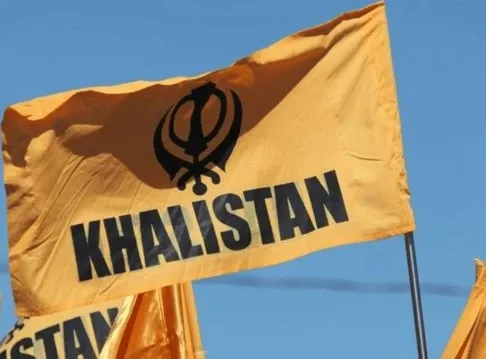
Synopsis
Key Takeaways
- UK Gurdwaras permitted to display Khalistan boards.
- Political leniency towards Khalistan movement in the UK.
- India's diplomatic ties with the UK affected by Khalistan issues.
- Radical groups gaining traction in the UK.
- Pro-India Sikhs facing intimidation.
New Delhi, Aug 12 (NationPress) It is indeed alarming that a Gurdwara in the UK has been granted permission to display boards with the word “Khalistan”. However, this leniency from the UK government towards the Khalistan movement has been ongoing for quite some time, making this decision less shocking than it seems.
The UK charity sector's regulatory body has concluded that the Khalistan boards at Gurdwara Shri Guru Singh Sabha in Slough do not breach political guidelines applicable to charities operating in the country. While the Khalistan issue draws significant attention in Canada, it is also a growing concern in the UK.
India's diplomatic relations with the UK have deteriorated, particularly during the tenure of Prime Minister Justin Trudeau. The recent tensions were exacerbated by the death of Hardeep Singh Nijjar, labeled as a terrorist, while being described in the UK and Canada as a family man, activist, and diligent plumber.
One of the key issues is the lack of an organized diaspora group to counter this narrative. The Khalistan advocates have successfully infiltrated western media outlets. In reality, Nijjar was affiliated with the banned Babbar Khalsa International (BKI).
It is ironic that certain pressure groups in the UK and Canada refer to Nijjar as a hardworking individual, despite the fact that the BKI is recognized as a terrorist organization in several countries, including the UK, US, Canada, Japan, and the European Union.
Support for Khalistan groups is particularly strong in Canada, where they represent a significant voting bloc, leading political parties to hesitate in taking action against them. In the UK and US, the challenge lies in preventing these radical factions from infiltrating political parties under the guise of human rights advocacy.
The Sikh Federation UK has celebrated the 1987 terror attack on a British School, known as the Dormers Wells mass murder case. There have been several referendums and movements concerning the 1984 anti-Sikh riots and the 2020 farmer protests in New Delhi.
Although these radical factions may not wield the same political influence in the UK as they do in Canada, their years of lobbying have begun to bear fruit, and they aim to replicate this success in the UK.
Concern grows as support for these factions is becoming increasingly overt. Authorities and media in the UK often adopt a neutral or sympathetic stance towards them. Currently, there exists a network in the UK that supports these elements through various groups that advocate on their behalf.
They are also backed by social media influencers. Similar to the situation in Canada, Khalistani factions in the UK are becoming more aggressive. With their network of pressure groups, media allies, and political supporters, there is rising pressure on Sikhs to align with this cause.
Incidents of intimidation and harassment against Sikhs by Khalistani supporters are on the rise. Pro-India Sikhs are particularly targeted, as evidenced by the attack on the Rangrez restaurant in Hammersmith.
Respected Sikh leader Lord Singh of Wimbledon has disclosed that he faced harassment and attempts to silence him due to his differing opinions. A significant challenge is that these groups maintain control over many Gurdwaras in the UK.
The latest Gurdwara in the UK, Guru Singh Sabha, features a portrait of the slain Khalistani terrorist, Jarnail Singh Bhindranwale.
Furthermore, these groups are becoming increasingly desperate as they fail to garner the desired level of support. They occasionally score points, but the larger Indian diaspora generally does not endorse their actions.
A security breach was reported during External Affairs Minister Dr. S. Jaishankar’s visit to the UK when pro-Khalistani activists demonstrated outside Chatham House in London, waving flags and chanting slogans while the Minister engaged in discussions inside.
In a separate incident, these elements disrupted a theater in London to prevent the screening of the film Emergency. The UK has largely remained silent regarding such occurrences.
The Indian government warns that while numerous countries have struggled to address this issue, they must recognize that the ramifications will eventually affect them. These dangerous elements, allegedly supported by the ISI, could become increasingly lethal if pushed too far.



